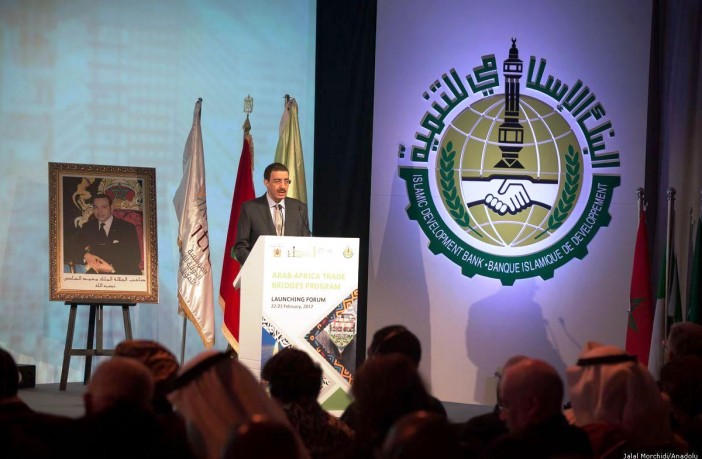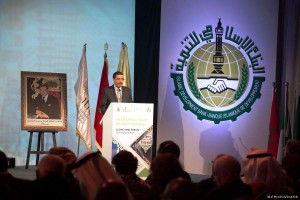CPI FINANCIAL
by Matthew Amlôt
The Islamic Development Bank (IsDB) Group is leading a roadmap to strengthen the Arab – Sub-Saharan Africa in the next three years.
The IsDB roadmap includes identifying business opportunities and the areas of finance, building logistics platform, supporting trade, credit and insurance, and developing the necessary infrastructure to facilitate trade.
IsDB Group President, Dr. Bandar Hajjar, and Mr. Mamoun Buhedod, Minister Delegate to the Minister of Industry, Trade, Investment and Digital Economy in charge of Microenterprises and the Integration of the Informal Sector in the Kingdom of Morocco, inaugurated the Arab-African Trade Bridges (AATB) forum, held on February 22-24 in Rabat.
Addressing the event, the IsDB Group President said that the volume of Bank’s support for development programmes and infrastructure projects in Africa has reached more than $43 billion, which included funding for projects in infrastructure. He added that the volume of trade financing granted to Arab and African member countries since the establishment of the International Islamic Trade Finance Corporation (ITFC), which is IsDB’s trade financing arm, has reached about $15 billion, in addition to cooperation with many strategic partners to design and implement a number of programmes and activities for the development of trade amongst member countries.
The IsDB Group President then urged Arab and Sub-Saharan African countries to take advantage of capacity development programmes to be available thanks to the “Arab-African Trade Bridges” programme over the next three years.
The participants in the forum and side events were trade ministers, directors of trade promotion agencies, presidents of the chambers of commerce and industry representing OIC Arab and Sub-Saharan African member countries, as well as international financial institutions and banks.
A number of memorandums of understanding were signed between the main participants during the forum’s inauguration ceremony.
The initiative of the “Trade Bridges between Arab and Sub-Saharan African countries” forum was proposed by ITFC during the seventh meeting of the Coordination Group to support cooperation in the field of foreign trade and export credit. Besides ITFC, the Coordination Group includes: the Arab Bank for Economic Development in Africa (BADEA), the Islamic Corporation for the Insurance of Investment and Export Credit (ICD), the Arab Trade Financing Program, the Arab Monetary Fund, the OPEC Fund for International Development, the Saudi Fund for Development and the Arab Investment & Export Credit Guarantee Corporation.
While in Morocco, Dr. Bandar Hajjar also visited two major projects funded by IsDB in the city of Kenitra. The first was Kenitra Power Station with a capacity of 315 MW which practically supports the National Electricity Office meet the growing demand for electric power and support the economic and industrial growth in the country. The second project, still under construction, was the high-speed train, to which IsDB has been funnelling funds for construction of the rails for three new stations:
Kenitra, Tangiers and Casablanca.
Furthermore, the IsDB Group Chairman also attended a workshop of potential partners in a pilot programme launched by the IsDB in partnership with the World Bank, known as “Education for Competitiveness (E4C).” This initiative aims to modernise and strengthen the educational systems in the Middle East and empower young people in the region to get better jobs in a world of increasing competition through harmonising education outputs with labour market requirements.
During IsDB Group President’s visit to Morocco, the Bank organised, jointly with the Federation of Moroccan Entrepreneurs and the Union of Moroccan Consultants, a workshop on job opportunities provided by IsDB for contractors and consulting firms through its portfolio in Sub-Saharan Africa. The workshop reviewed the procurement and funding mechanisms, methods of supporting the private sector, and mechanisms of communicating offered opportunities.








